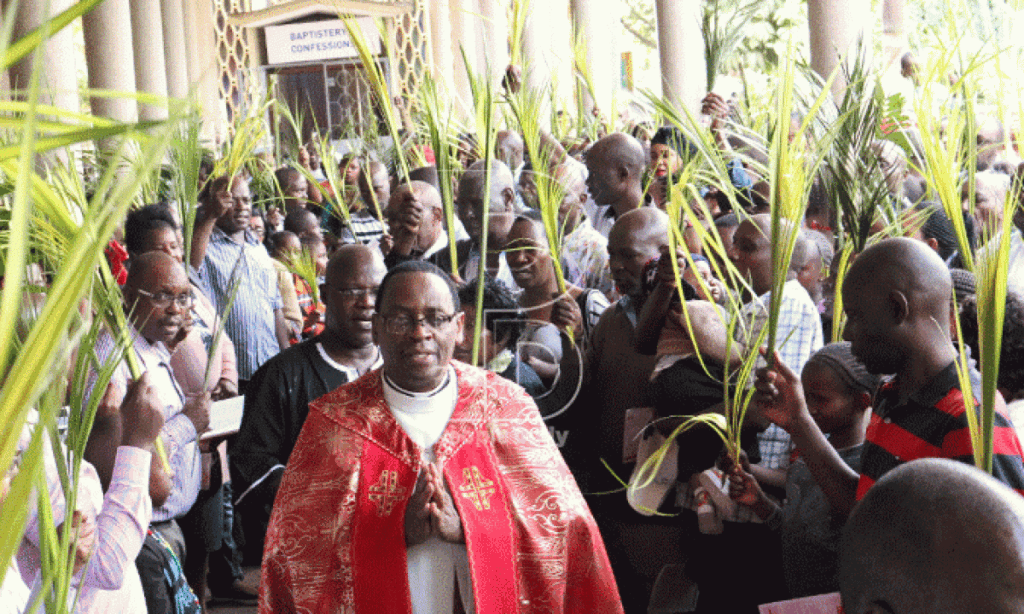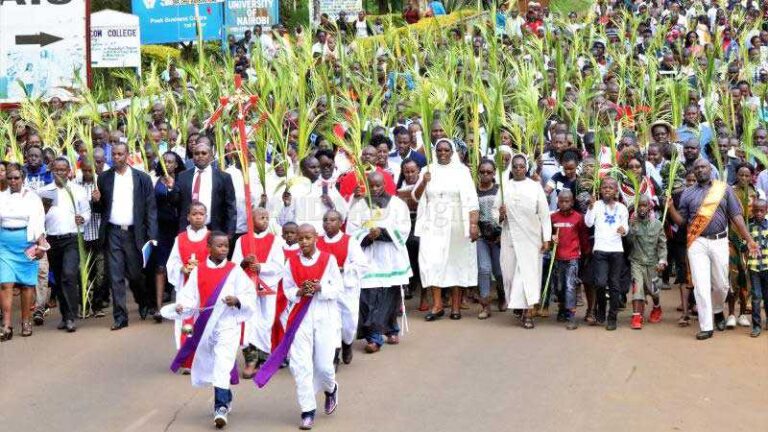- For many people, Easter is just another religious holiday marked by traditions and rituals
- While the significance of Christ’s resurrection is central to the faith, the commercialization and secularization of Easter often overshadow its spiritual meaning
- In modern society, Easter has become synonymous with colorful eggs, and lavish feasts, leading some Christians to lament the loss of focus on the religious aspects of the holiday
Easter, celebrated by billions around the globe, is not just about colorful eggs and chocolate bunnies.
Behind its vibrant façade lie fascinating traditions, history, and symbolism that often go unnoticed.
Here are six captivating aspects of Easter that might surprise you:
The Name Origins
Have you ever wondered why Easter is called “Easter”?

The name itself traces back to the Anglo-Saxon goddess of spring and fertility, Eostre. Early Christians, seeking to spread their faith, repurposed existing pagan festivals, blending them with Christian symbolism. Thus, the celebration of Christ’s resurrection became intertwined with springtime festivities, ultimately adopting the name “Easter.”
The Egg Symbolism
Eggs have been an integral part of Easter celebrations for centuries, but their significance goes beyond a simple treat. Across cultures and religions, eggs symbolize rebirth, renewal, and new beginnings.
Follow our Facebook page for more updates:
Ancient Egyptians, Greeks, and Romans all believed in the egg’s powerful symbolism of life and fertility. Even in Christianity, eggs represent the empty tomb of Jesus, signifying his resurrection and the promise of new life.
The Connection to Passover
Easter’s timing is not arbitrary; it is intricately linked to the Jewish festival of Passover. According to the New Testament, Jesus’ Last Supper with his disciples was a Passover meal. The crucifixion and resurrection of Jesus occurred during the Passover festival, highlighting the theological connection between the two holidays. In fact, the Last Supper is believed to be the origin of the Christian ritual of Holy Communion.
The Surprising Roots of the Easter Bunny

While the Easter Bunny is a beloved figure in modern celebrations, its origins are far from the Christian narrative. The Easter Bunny’s origins can be traced back to German folklore, where it was a symbol of fertility and springtime abundance.
Follow our Facebook page for more updates:
German immigrants brought the tradition to America in the 1700s, where it gradually became intertwined with Easter festivities, eventually evolving into the iconic figure we know today.
The Varied Date of Easter
Unlike fixed-date holidays like Christmas, Easter’s date varies from year to year. This is because Easter is based on the lunar calendar, specifically the first Sunday following the full moon after the vernal equinox. This means that Easter can fall anywhere between March 22 and April 25.
Also Read:
1: World Radio Day: Top 5 Kenyan Radio Presenters Ruling The Airwaves
2: International Women’s Day: 5 Most Influential Kenyan Women Giving Men Fierce Competition in Politics
The complexity of determining the date of Easter has led to occasional disagreements among Christian denominations, resulting in the establishment of the Gregorian calendar in 1582 to standardize the calculation.
Easter Traditions Around the World
While Easter is celebrated globally, the customs and traditions associated with the holiday vary greatly from one country to another. In Greece, for example, it is tradition to playfully crack red-dyed eggs to symbolize Christ’s resurrection.
Follow our Facebook page for more updates:
In Sweden and Finland, children dress up as Easter witches and go door to door, exchanging drawings and blessings for candy and coins. In Spain, elaborate processions and reenactments of the Passion of Christ take place during Holy Week, leading up to Easter Sunday.
Understanding the deeper meanings behind Easter’s customs and rituals adds richness and depth to the holiday, allowing us to appreciate its significance in new ways.
So, as you indulge in chocolate eggs and festive gatherings this Easter, take a moment to reflect on the hidden gems of this ancient and beloved holiday.

